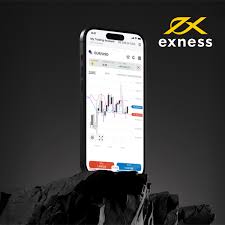Comprehensive Overview of Exness Regulations for Traders
Understanding Exness Regulations In the rapidly evolving world of online trading, regulations play a crucial role in ensuring the safety and security of traders. Understanding exness regulations Exness República Dominicana regulations is essential for making informed trading decisions. Exness, a well-known forex broker, operates under strict regulatory frameworks in various jurisdictions to protect its clients […]

Understanding Exness Regulations
In the rapidly evolving world of online trading, regulations play a crucial role in ensuring the safety and security of traders. Understanding exness regulations Exness República Dominicana regulations is essential for making informed trading decisions. Exness, a well-known forex broker, operates under strict regulatory frameworks in various jurisdictions to protect its clients and maintain trust within the trading community. This article delves into the various regulations Exness complies with and how they affect traders.
What are Trading Regulations?
Trading regulations refer to the set of rules created by governmental agencies or financial authorities to ensure fair trading practices among brokers and traders. These regulations are designed to protect traders from fraud, market manipulation, and other unethical practices. Regulations differ from one country to another and can include licensing requirements, capital adequacy, and client fund protection protocols.
Exness Regulation Overview
Exness is regulated by several authorities across different regions. These include the Financial Conduct Authority (FCA) in the UK, the Cyprus Securities and Exchange Commission (CySEC), and the Financial Services Authority of Seychelles (FSA). Each regulatory body sets its own guidelines and standards which Exness adheres to, offering various assurances to its clients regarding safety and transparency.
1. FCA Regulation (UK)
The FCA is one of the most reputable regulatory bodies globally. Forex brokers under the FCA are required to hold a significant amount of client funds in segregated accounts, ensuring that traders’ money is not used for anything other than trading-related purposes. Additionally, FCA regulations require brokers to provide negative balance protection, ensuring that clients cannot lose more than their deposited amounts. This regulatory stamp of approval adds an extra layer of security for Exness traders based in the UK or those trading with an FCA-registered account.
2. CySEC Regulation (Cyprus)
CySEC offers another strong regulatory framework for Exness. Brokers regulated by CySEC must adhere to strict capital requirements, maintain transparent operations, and ensure that clients’ funds are kept in a secure environment. CySEC also requires brokers to participate in the Investor Compensation Fund, which provides clients with additional protection should the broker experience insolvency.

3. FSA Regulation (Seychelles)
The FSA license provides a different level of regulation compared to the FCA and CySEC. While this regime is generally considered less strict, Exness still demonstrates compliance with standard practices for the safety of its traders. The FSA allows Exness to offer competitive trading conditions that may not be possible under stricter regulations.
Regulatory Benefits for Traders
Understanding the regulations applied to Exness is vital for traders looking to protect their interests. Regulatory oversight provides several benefits:
- Protection of Funds: Segregation of client funds ensures traders’ money isn’t mingled with the broker’s operational funds.
- Transparency: Regulated brokers must maintain high levels of transparency in their operations, including detailed reporting on their financial status and business practices.
- Conflict Resolution: Regulatory bodies often provide mechanisms for resolving disputes between traders and brokers, offering further peace of mind.
- Market Integrity: Traders benefit from a fair trading environment where market manipulation is strictly prohibited.
Compliance with International Standards
Beyond compliance with local regulations, Exness adheres to international standards as well. This is crucial as many traders operate in a global context. By following through on anti-money laundering (AML) and know your customer (KYC) protocols, Exness ensures that it meets the expectations set forth by international organizations. This compliance further enhances the safety of traders, providing additional verification processes that bolster trust in the trading environment.
Future Developments in Exness Regulations
The landscape of trading regulations is continuously evolving. As the online trading industry grows and integrates new technologies, regulatory authorities are likely to adapt their guidelines to address emerging challenges. Exness, being an industry leader, will need to ensure that it not only complies with existing regulations but is also proactive in anticipating future regulatory changes. Traders should stay informed about potential shifts in regulations that could impact their trading experience.
Conclusion
In summary, Exness operates under stringent regulatory frameworks that protect traders and provide a secure trading environment. By understanding these regulations, traders can make informed decisions and have confidence in the safety of their investments. As the trading environment continues to change, staying updated on regulations will be essential for all traders, ensuring they fully capitalize on the opportunities within the forex market while being shielded from risks.

